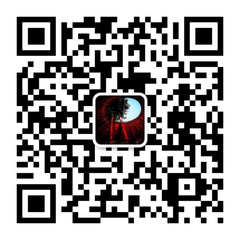班,社,会,堂 ,坛,等等(“团”)
办事,应门事,送经,等等(“表演,演出”)
鼓乐班,吹鼓手,鼓匠,等等(“唢呐队“)
家伙,等等(“乐器”)
娃子,喇叭,等等 (“唢呐”)
响器,法器(“打击乐”)
法师,师公,阴阳,等等(“仪式执行人”)
经本,书,等等(“科仪本”)
明人,马童,大仙,等等(“神婆/神汉”)
此外,以上这些词汇在华北地区也并非通用,如晋北地区不使用“神婆”/“神汉”(陕北),等等。
Vocabularies, educated and local
Posted on 17/03/2017 by StephenJones.blog
One aspect of respecting our local hosts, and “abiding by local customs” (ruxiang suisu 入乡随俗), is that fieldworkers should be careful not to inflict their educated vocabulary on locals. Just as you wouldn’t use poncey language in talking to Newcastle rappers, or to old-time musicians in Kentucky (so “harp” rather than “harmonica”)—even if they may understand it, or even adopt it temporarily for our benefit. Vocabulary reflects world-view, so we should try and latch onto it.
Some terms are just a matter of basic fluency: one never “plays” (yanzou 演奏) instruments, for example, but (according to their means of sound production) one blows (chui 吹), beats (da 打), bows (la 拉), or plucks (tan 弹) them. In Yanggao, the often-used term kabulei (“fantastic”) would be kebulai in standard Chinese, but bucuo is the standard urban version. I like duohuir (“When?”, actually more like duohuor), more classically economical than the cumbersome standard shenme shihou.
Of course it’d be silly to try and go native; we can only retain our personality. But little efforts to adapt to their world-view pay dividends. Often we will seek a more idiomatic way of expressing our own scholarly vocabulary.
In the table below I give some random examples from my fieldwork experience in ritual and musical life, mainly in north China. Maybe I’ll add to it as I go along—these are just some of the terms I’ve picked up. [1] Of course, it relates to taxonomy. Some terms (such as those for spirit mediums) are gender-based.
But few of these terms can be applied casually across the board: precisely because they are local, one can’t even expect (for instance) to use a Shaanbei term for spirit medium in north Shanxi—still less in Guangxi or Fujian.
Few fieldworkers, however, will be able to master the remarkable secret language (“black talk”) of shawm bands and ritual specialists in Yanggao, as did the sensitive ears of Hubei native Wu Fan. See also this article by a Yanggao local:
•Chen Kexiu 陈克秀, “Yanbei guchuiyue yirende heihua” 雁北鼓吹乐艺人的黑话, Zhongguo yinyuexue 2007.4.
Educated term English local term
tuan 团 ensemble, group etc. ban 班
(ritual:)
she 社
tang 堂
hui 会
huitong 会统
foshihui 佛事会
tan ��
peng 棚
etc. etc.
yanchu 演出
biaoyan 表演 perform banshi 办事
yingmenshi 应门事
songjing 送经
chuhui 出会
etc.
zangli 葬礼 funeral baishi 白事
qushi 去世 to die xiashi 下世
yishi zhixingren 仪式执行人 (!) ritual practitioner fashi 法师
shigong 师公
duangong 端公
jiaozhu 教主
tangzhu 堂主
zhangjiaode 掌教的
erzhai 二宅
nianjingde 念经的
wentan 文坛
xiansheng 先生
etc. etc.
daoshi 道士 Daoist laodao 老道
yinyang 阴阳
jia heshang 假和尚 (!)
etc. etc.
xuesheng 学生
tudi 徒弟 student
disciple
mensheng 门生
chuantong 传统 tradition (lao) guiju (老)规矩
lingdao 领导 leader dangjia 当家
(secular and sacred)
keyiben 科仪本 ritual manual jingshu 经书
jingben 经本
shu 书 !
yueqi 乐器 musical instruments jiahuo 家伙
xiangqi 响器
dajiyue 打击乐 percussion luogu 锣鼓
faqi 法器
xiangqi 响器
suona 唢呐 shawm weirwa ?
wazi 娃子
laba 喇叭
etc. etc.
suona dui 唢呐队 shawm band guyueban 鼓乐班
chuigushou 吹鼓手
chuishou 吹手
gujiang 鼓匠
etc.
shaopian 哨片 reed mimi 咪咪
etc.
yinyuejia 音乐家 musician yiren 艺人 (used sparingly)
shenpo 神婆
shenhan 神汉 spirit medium mingren 明人
daxian 大仙
xiangxiang 相相
xiangtou 香头
matong 马童
shenguan 神官
dingshende 定神的
tiaoshenr 跳神儿
chigai 乞丐 beggar yaofande 要饭的
etc.
[1] See also my In search of the folk Daoists, pp.12–15.


